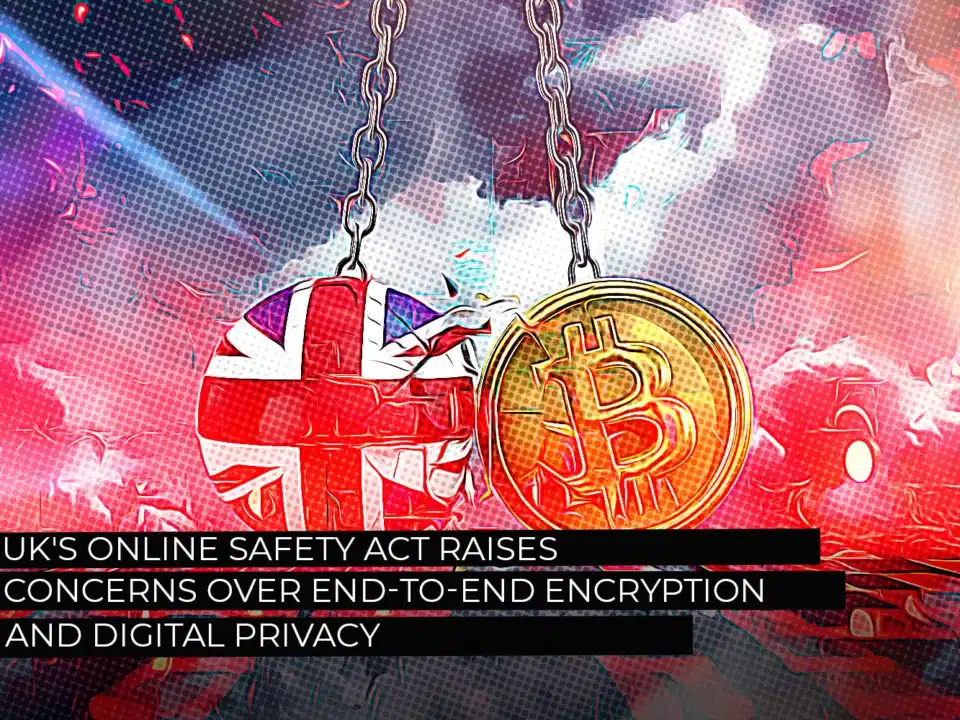The UK’s Online Safety Act has sparked significant debate over its potential effects on end-to-end encryption and digital privacy. As the government seeks to bolster online safety and combat illegal content, concerns are rising about the implications for secure communication. Many fear that the Online Safety Act could undermine user privacy by mandating access to encrypted messages. In this rapidly evolving digital landscape, understanding the balance between security and privacy becomes crucial for both individuals and organizations.
Understanding the UK’s Online Safety Act

The UK’s Online Safety Act is a legislative measure aimed at regulating digital platforms to ensure a safer online environment for users. This act imposes obligations on tech companies to manage and mitigate harmful content on their platforms. Specifically, the Online Safety Act targets:
- Social media networks: Companies must adopt stringent policies to prevent the spread of illegal content.
- Search engines: Required to remove links to harmful or illegal websites.
- User-to-user platforms: Obliged to enforce community standards rigorously.
Key Objectives of the Online Safety Act:
- Protection of minors: Special emphasis on safeguarding children from online abuse and exploitation.
- Reduction of illegal content: Mandating swift removal of content promoting terrorism, child sexual abuse, and other illegal activities.
- Transparency and accountability: Ensuring companies are transparent about their content moderation processes and accountable for their failures.
Comparison of Before and After Implementation:
| Aspect | Before Act | After Act |
|---|---|---|
| Content Moderation | Voluntary | Mandatory and enforceable |
| User Protection | Inconsistent | Standardized and robust |
| Platform Accountability | Minimal | Strict and liable for non-compliance |
In short, the Online Safety Act aims to create a safer online space, though it has sparked debates over its impact on privacy and freedom of expression.
Impact on End-to-End Encryption
The Online Safety Act seeks to enhance online security, yet it poses significant challenges to end-to-end encryption. This type of encryption ensures that only the communicating users can read the messages. However, the Act’s requirements might undermine this security protocol. Here’s how:
- Mandated Access: The Act could compel service providers to allow government access to encrypted communications. Consequently, this access might weaken the encryption, reducing overall data security.
- Technical Compromises: To comply with the Online Safety Act, companies might need to introduce technical solutions, such as encryption backdoors. These backdoors can later be exploited by malicious actors.
- User Trust: If encryption is compromised, users may lose trust in the privacy and security of their communications.
| Concern | Details |
|---|---|
| Mandated Access | Government access to encrypted communications. |
| Technical Compromises | Potential requirement for backdoors in encryption protocols. |
| User Trust | Diminished trust in communication security and privacy. |
Therefore, while the Online Safety Act aims to protect users online, its impact on end-to-end encryption raises critical concerns about maintaining robust digital privacy.
In summary, it’s essential to balance safety and privacy to ensure comprehensive online protection.
Implications for Digital Privacy
The Online Safety Act has raised significant concerns about digital privacy among both users and privacy advocates. There are several critical implications to consider:
Data Access: The Online Safety Act may require service providers to grant government agencies access to encrypted communications. This access could potentially expose private messages to third parties, undermining user trust.
User Anonymity: A potential reduction in anonymity is another significant concern. The Act could mandate service providers to collect and store more user data, increasing the risk of data breaches.
Impact on Businesses: Companies offering end-to-end encryption services might face compliance challenges. They may need to alter their security protocols, which could jeopardize their competitive edge and user confidence.
Comparison Table: Current vs. Post-Act Scenario
| Aspect | Current Scenario | Post-Act Scenario |
|---|---|---|
| Data Access | Limited to service providers | Potential access by government agencies |
| User Anonymity | High due to minimal data collection | Reduced due to increased data collection |
| Business Approach | Strong encryption without backdoor access | Possible alterations to comply with government access |
In summary, while the Online Safety Act aims to enhance online security, it poses significant risks to digital privacy, affecting both individuals and businesses alike.
Frequently Asked Questions
What is the UK’s Online Safety Act?
The UK’s Online Safety Act is a piece of legislation aimed at regulating online content to ensure the safety and security of internet users, particularly minors. The act requires online platforms to take proactive measures to remove harmful content such as hate speech, misinformation, and material promoting self-harm. Companies that fail to comply with these regulations may face significant fines and other penalties.
How does the Online Safety Act impact end-to-end encryption?
The Online Safety Act has raised concerns over end-to-end encryption because it potentially requires online platforms to monitor private communications to identify and remove harmful content. End-to-end encryption, which ensures that only the communicating users can read the messages, could be compromised if platforms are mandated to create backdoors or access points for monitoring. Critics argue that this undermines the fundamental privacy and security benefits that end-to-end encryption provides.
What are the privacy concerns associated with the Online Safety Act?
The main privacy concerns stem from the possibility that the act could lead to increased surveillance and reduced confidentiality of online communications. Implementing measures to monitor and remove harmful content might require platforms to weaken encryption or introduce vulnerabilities that could be exploited by malicious actors. Privacy advocates warn that such measures could erode users’ trust in digital services and compromise personal data security.
Are there any provisions in the Online Safety Act to protect user privacy?
The UK government has stated that the Online Safety Act includes safeguards to balance safety and privacy. These provisions are intended to ensure that any measures taken to monitor or remove harmful content are proportionate and minimize impact on user privacy. However, critics argue that the effectiveness of these safeguards remains to be seen and that more robust protections are essential to truly preserve digital privacy while addressing online safety.







